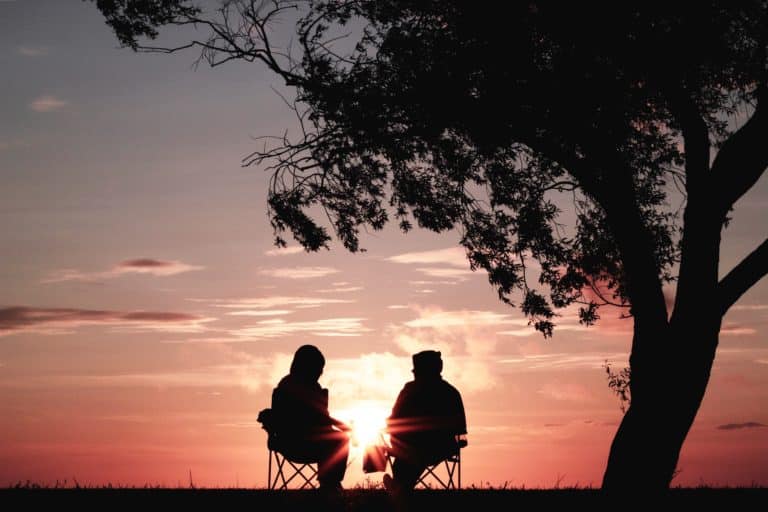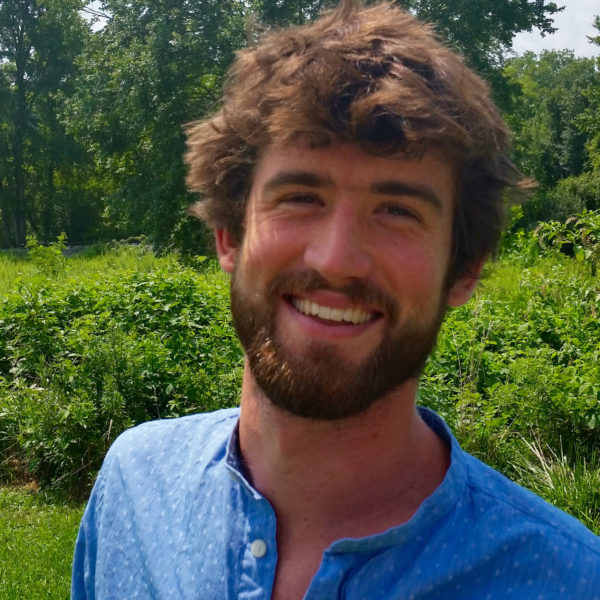
Image by Harli Marten/Unsplash, Public Domain Dedication (CC0).
You Are Either Listening Or You’re Not
Listening is endangered in America today, hovering near the brink of extinction at this divided hour when it is needed most. It is not a skill that any of us is born with, nor is it a capacity that we inevitably acquire with age. It is a practice that demands an apprenticeship from which there isn’t a single moment’s rest. Like any form of communication, listening must be learned.
And yet, listening is not taught in America, at least not in the schools I attended. There seemed to be an implicit assumption that students understood what listening was, why it mattered, and how to do it.
Sure, I was taught the rudimentary basics in kindergarten, but, after that, I received no more formal training in this most subtle skill. As the years went by, from middle school to high school to college, there were no required classes that discussed the philosophy and practice of listening, and I came to believe that listening was one of either two things: an onerous chore that I had to perform in order to stay within the realms of socially acceptable behavior, or a weapon I should use to my advantage — something I had to do in order to dismantle the arguments of my peers with superior reasoning.
I didn’t discover the transformative power of real listening until I walked more than 4,000 miles across the highways of the United States with a sign on my backpack proclaiming that was all I was doing. “Walking to Listen,” it read. It was not in the classroom but on the road, on foot, with thousands of different Americans, that I received my unofficial training in this most rare and necessary skill.
It was October 2011. I had just graduated from Middlebury College. I was 23 years old, unemployed, and uncertain about what I was supposed to do with my life. I also wanted to meet my people, Americans. Who were we? What were our stories? How did we all fit in together, or did we?
I didn’t have much money, so I decided I’d just start walking, and listening, asking for guidance from whomever I met. I hoped to meet as many people as possible, all different kinds of people — offline, face to face. I wanted to see each of them as worthy of my attention, each one a unique wellspring of experience that I could learn from if they were willing to share. I was going to walk and listen until I ran out of money or reached the Pacific Ocean, whichever came first.
Listening begins with humility, I learned — the humility to ask an earnest question without assuming you already know the answer. And it is powered by authentic respect — respect for the struggles and complexities of a person’s life, and for the ultimate value of that life, value that remains undiminished by the abhorrent opinions that person may hold or even by the crimes they may have committed.
Listening is audacious in this way, even unreasonable at times. It is to choose to love someone — or at least remain committed to the work of trying to understand them — even when they don’t give you any reason to.
There was a man outside New Orleans who gave me an opportunity to practice this kind of listening while I was walking across America. I was on the outskirts of the city at sundown when I heard him shout at me from across the road.
“Hey!”
He sounded angry, so I kept walking.
“Hey, you! Walker!”
Feeling it’d be more dangerous to ignore him, I crossed the road to go meet him.
“What are you doing?” the man barked from his porch.
“I’m walking across America listening to people’s stories,” I said. “I started outside Philadelphia and I’m heading to California—”
“Philadelphia?” he cut me off. “So you’re a fucking Yankee? Who the fuck invited you down here?”
My heart roiled in my stomach. I balanced on a hairline precipice in my mind, an abyss of panic on both sides. All of my on-the-road training in listening kicked in, and I tried to look at the guy with love, that rare quality that can meet hatred without hating it in return. But I was scared.
“Well,” I said, “no one invited me, but I didn’t come here to start any problems. I’m just listening to people’s stories, and I have to find a safe place to camp out before it gets dark. I’ll be moving on.”
I turned around and walked a few paces, my heart racing. The guy shouted out again.
“Hey, wait!”
I stopped and looked back, my body clenched.
“You, uh . . . you like beer?” he asked.
Before I could think about it, I said that I did.
“You . . . you want one?”
“Sure,” I said, after a pause, wondering if this was suicide.
He made me leave my backpack outside, for fear I might pull a gun on him. We walked through his messy living room, littered with cat toys.
“You’re gonna like this beer,” he said begrudgingly, as if I were forcing him to do all this. He pulled out two bottles from the fridge. “It’s my favorite.”
He joined me at the kitchen table, lit a cigarette, and began to speak as if he’d been waiting to do so for years, or as if I were an old friend.
He was telling me a story about how violent he used to be when he slipped in a quick detail that permanently changed the way I perceived him.
“I was hoping somebody would jump me that day because I wanted to kick somebody’s ass,” he said. “I was pissed off because I had to bury my son.”
It was bizarre to feel both compassion and disgust at the same time. Suddenly, I saw a reprehensible criminal and a grieving father. I couldn’t help but wonder at the pain he must feel, or the pain he wouldn’t let himself feel. The wound had no legitimizing effect whatsoever on his violence, but it did shock me with the reminder that there was a human beneath the hatred.
Listening has a way of complicating any simplistic good-and-evil dichotomy in this way. When people entrusted me with their stories — their brokenness, their frailties and fallibilities — it made it impossible for me to hate them, even if I was deeply disturbed by some of the things they believed or had done. And when I didn’t hate them, and asked them questions without malice, they could remain open, and it is in this openness that transformation becomes possible.
Listening, at times, seems to contradict everything I learned in school. It’s about forgetting yourself for a moment, letting go of your agendas, abandoning the need to prove anything or dominate the conversation or convert someone to your cause by showing them how wrong they are. It is, instead, simply — and challengingly — about witnessing someone. It is not a passive “appalling silence,” the likes of which Dr. Martin Luther King, Jr. condemned. It is active, engaged, deeply concerned with the task of understanding how someone got to be the way they are and becoming trustworthy enough that they would be willing to tell you that story.
Listening with judgment, ready to defend and attack, is not the kind of listening I’m talking about. That’s critical thinking, argumentation, debate — important tools that most schools do a good job of teaching. What I’m talking about is listening, a commitment to exploring and building connection with others based on our shared humanity even when that kind of connection seems impossible.
I had to walk across America to learn how to listen. Let’s make it easier on the rest of our youth. How would our schools transform if listening became a part of their core curricula? And what about the young ones who grew up without ever learning this indispensable discipline, who became the adults that are now governing America? How would the whole country change if they, too, were required to undergo remedial education in listening?
We shouldn’t wait for them to acquiesce, nor should we wait for our schools to revamp their programming. It would take too long, and there’s no time to waste, because listening is sorely needed now. Each of us must apprentice ourselves to this practice, and the practice is never-ending. You are either listening, or you’re not. Which is it?

Share your reflection